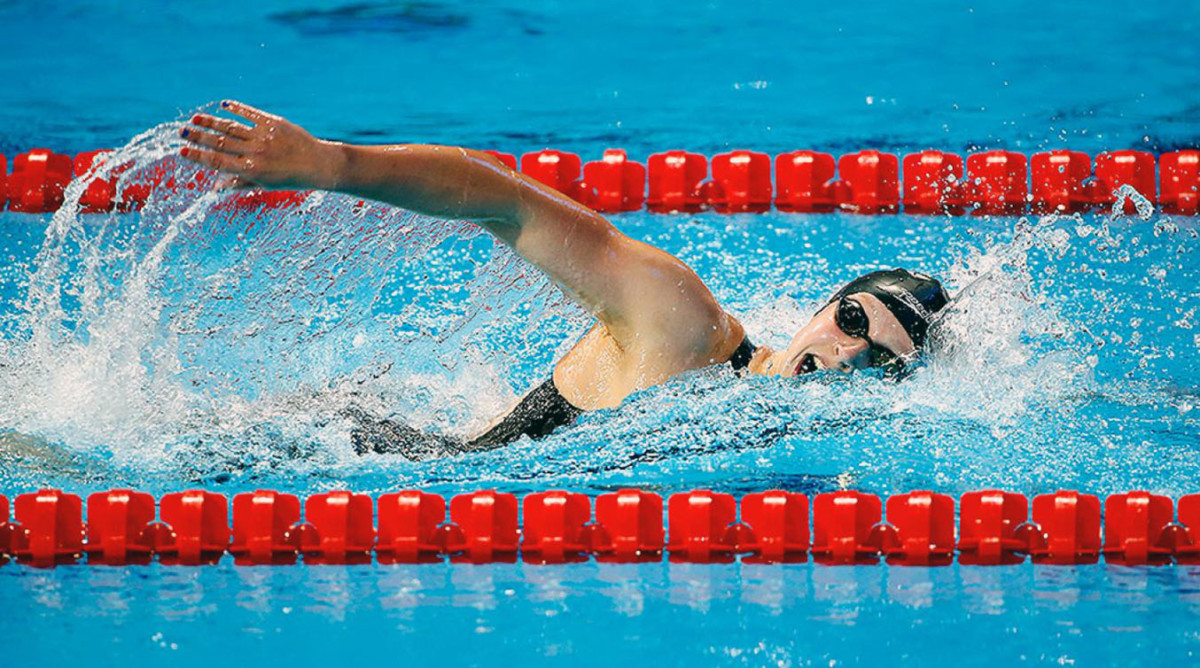Holly Santero, Senior Editor
@SanteroCourant
Katie Ledecky, the 19-year-old, five-time Olympic gold medalist, has received extensive praise for her athletic prowess in the swimming pool. However, the majority of her compliments have been dedicated to the fact that she swims in a “manly fashion.”

In a Sports Illustrated profile on Ledecky, Ryan Lochte is quoted as saying: “She swims like a guy. Her stroke, her mentality: She’s so strong in the water. I’ve never seen a female swimmer like that. She gets faster every time she gets in, and her times are becoming good for a guy. She’s beating me now, and I’m, like, ‘What is going on?’”
What’s going on is that another swimmer, regardless of their gender, is kicking your butt. Her talent and success in the pool shouldn’t only receive praise because they’re seen as “man-like”. Talent is talent, period. Being more “manly” does not enhance that talent, and implying that it does is just condemning the value of a woman to be less than that of a man.
What people like Lochte need to understand is that “she doesn’t swim like a man — she swims like Katie Ledecky.” Something that NBC’s Rowdy Gaines intelligently noted during the press swarm surrounding Ledecky’s “manlike” stroke.
Gaines, however, is not alone in his opinion. Certain reporters have also caught onto the sexist commentary comparing Ledecky’s talents to those of a man and have actually starting to reverse their theories .

Attributing Phelps’s success to his feminine stroke, the Mic Daily article mimics the sexist commentary about Ledecky when referring to Phelps’s stroke, saying, “Just look at that woman swimming, in such a dainty, womanly fashion. Would you like some tea and crumpets when you get out of the pool, ma’am?” The absurdity is as clear as the message it implies; no athlete needs to be compared to their male or female counterpart.
Talent and success should stand on their own, not be compared or reevaluated because of something like their gender. With the publication of articles like the Mic Daily one, the message to stop sexist commentary and insulting comparisons is gaining strength and publicity. It’s articles like these and the support they receive from readers that make the attainability of equality for men and women in media that much closer to becoming a reality.




